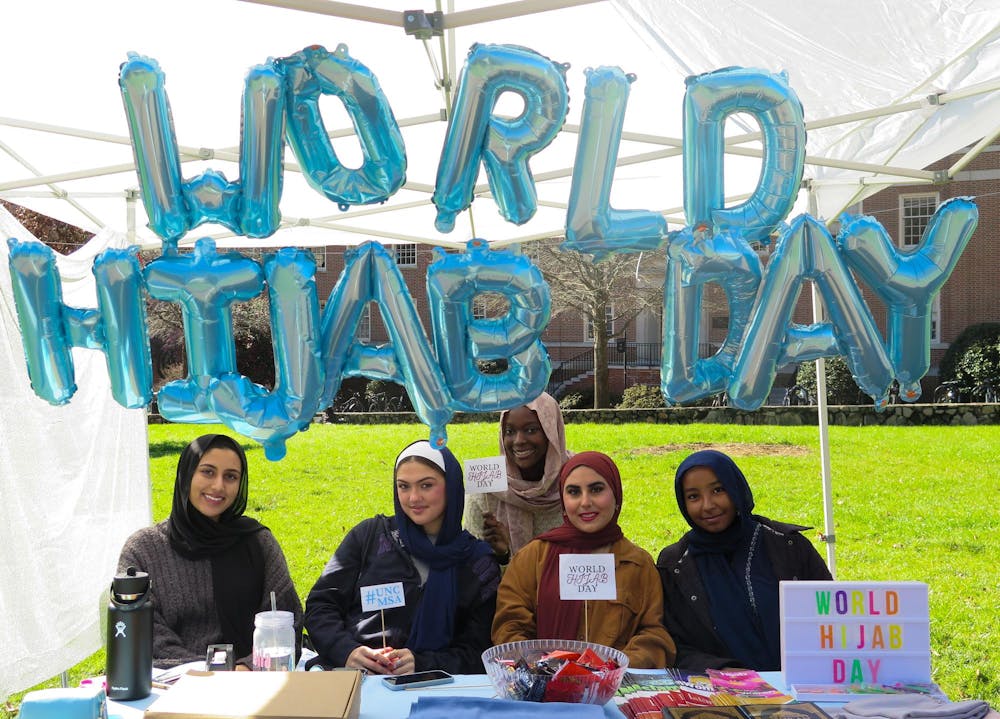Students from the Muslim Students Association hosted a table in Polk Place on Thursday to celebrate World Hijab Day.
The students offered free cookies, free copies of the Quran – the holy text of Islam – and gave people the opportunity to try on their own Carolina Blue hijab. There was also a photo backdrop for students to take a Polaroid picture in the garment.
World Hijab Day, founded in 2013 by Muslim activist Nazma Khan, is celebrated on Feb. 1 in over 150 countries worldwide. World Hijab Day's website says the holiday is held in recognition of "millions of Muslim women who choose to wear the hijab and live a life of modesty.”
In modern interpretations, hijabs are defined as head coverings or scarves that Muslim women wear to cover their hair. However, in general, the word “hijab” can be used to describe a broader concept of modesty that both Muslim men and women practice in their clothing choices.
“I started wearing the hijab when I was in third grade," Saira Malik, a senior who volunteered at the table on Thursday, said. "It kind of means a lot to me now because it's like modesty but it also becomes a part of your identity. It makes you who you are."
Ramisha Ahmed, another volunteer at the table, said that the table in Polk Place was a place to answer any questions from people who may be curious about what a hijab is and why it's worn. Ahmed started wearing the hijab in 2022, but before that, she said she would make cards for her sister every World Hijab Day to make her feel seen and to acknowledge how scary it can be to wear a hijab every day when it's not a societal norm.
“Since I am wearing a hijab, and I’m very visibly Muslim, I can be prone to Islamophobic attacks, comments or any kind of hate, especially in a Western world where that is very prevalent in the media, unfortunately,” Ahmed said. “That’s why World Hijab Day is nice — because it's a way to bond with others and show them that I’m just a person.”
World Hijab Day is not only to educate people about the hijab but also to break down misconceptions surrounding women who choose to wear it. Ahmed said that a big misconception hijabi women face from others is the idea that they are oppressed.
“I feel like a lot of the time because we visually look Muslim and people can identify us, they tend to put us in a box," Maab Sulieman, a volunteer at the table, said. "I think having a table where people can try on hijabs, ask questions, get a treat and get to know us on a personal level kind of breaks that box."




